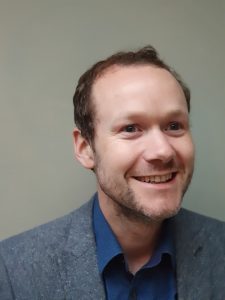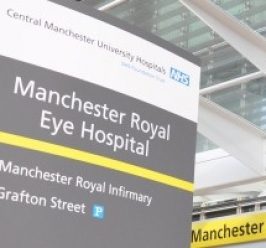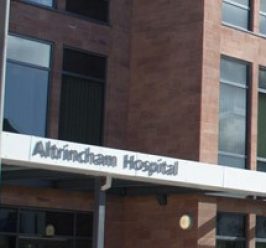About Glaucoma Services
The Glaucoma team at the Manchester Royal Eye Hospital provide services for patients with Glaucoma across Greater Manchester. In the UK, this condition affects approximately 1 in 50 people over the age of 40.
What conditions do we treat?
Glaucoma is a condition associated with raised pressure within the eye, which gradually damages the delicate nerve of the eye. If this is left untreated it can cause permanent visual loss.
We treat Glaucoma patients with varying levels of sight loss. Glaucoma gradually develops over many years, so tests to diagnose glaucoma may need to be repeated. The condition is more common in patients who have relatives with glaucoma.
What treatments do we offer?
The Eye hospital has the facilities to offer patients a number of tests to diagnose glaucoma and treatments to prevent sight loss or worsening sight loss. If glaucoma is detected and treated early enough, visual loss is preventable.
A number of tests need to be performed to diagnose glaucoma, patients can have these tests carried out at the Eye Hospital. The tests provided measure pressure within the eye, measure the visual fields (peripheral vision) and provide detailed imaging of the back of the eye.
There are different treatment options for patients with glaucoma, patients will be able to discuss with their Ophthalmologist and be provided with advice about which option is best for them. The following treatments are available:
- Eye drops – most patients will be treated with eye drops. These are usually effective and they are not too uncomfortable for patients.
- Laser – laser can be used instead of eye drops or alongside them. The team use the most up to date treatment (Selective Laser Trabeculoplasty SLT). This is safe, quick and painless.
- Surgery – a number of procedures can be performed, when a patient has significant visual loss or when other treatments are ineffective. In most cases, surgery can be performed under local anaesthetic.
A number of consultants deliver glaucoma care to patients at the Manchester Royal Eye Hospital and work alongside a team of specialist nurses, Optometrists and Orthoptists.
Childhood Glaucoma
At MREH, we offer a specialised service for children and young people with glaucoma.
Childhood glaucoma often occurs due to an abnormality in the trabecular meshwork; an area that is responsible for the drainage of fluid out of the eye. When the drainage is impacted, the pressure in the eye increases, expanding the size of the eye and causing it at times to look cloudy. As a result, your child may become more sensitive to light, develop watering of their eyes, or start to close/probe their eyes.
Glaucoma can occur in isolation or secondary to the other genetic/eye conditions, like Sturge-Weber syndrome or following congenital cataract surgery. Glaucoma can also be related to conditions that have wider health concerns and therefore as part of the management, these conditions may require further investigating.
Regardless of the cause, glaucoma is managed through eye drops or through surgery to help open the drainage channels and lower the pressure.
You will be asked to bring your child to the Eye Hospital for frequent visits so that the Doctor can check the pressure, using a specialist piece of equipment called an iCare. Eye drops may also be instilled at these visits which will temporarily increase the size of your child’s pupil (the black circular opening in the eye). This is so that the Doctor can check the health of the eye and the Optometrist can perform a glasses check.
As the visual system is still developing at this young age, your child will also see an Orthoptist at every visit who will monitor their visual development. Squints (misalignment of the eyes), amblyopia (reduced vision) and nystagmus (involuntary movement of the eyes) are commonly seen in children with glaucoma.
Orthoptic-led glaucoma transition clinic
Glaucoma is a lifelong condition and therefore your child will need ongoing monitoring as they get older; their care will be transferred from the paediatric to the adult glaucoma service. To help ease this process, we have set up a specialised orthoptic-led glaucoma transition clinic. The aim is to provide our young people with glaucoma more age-appropriate care and assist them and yourselves as they start to become more independent in managing their condition.
The Orthoptist responsible for this clinic is Ellisha Solanki.
Community Optometric-Led Glaucoma Clinic Leads
Amanda Harding
Amanda graduated from Aston University in 1995 and then completed a Masters in Investigative Ophthalmology and Vision Science from Manchester University in 2004. She obtained the Diploma in Glaucoma from the College of Optometrists in 2005 and Independent Prescribing qualification in 2012. Amanda is currently lead optometrist in glaucoma at Manchester Royal Eye Hospital (MREH) where she is responsible for the running of the optometric-led glaucoma assessment (OLGA) service. Her clinical work load is in glaucoma and acute services. She is also an examiner for the College of Optometrists, Cardiff University and The University of Manchester where she is also an Honorary Lecturer. She is involved in teaching and training of hospital staff and community optometrists and develops optometry services within MREH. She has chaired the Independent Prescribing panel for the College of Optometrists since 2016.
 Mr Patrick Gunn
Mr Patrick Gunn
Paddy is Principal Optometrist for Education and Training at the Manchester Royal Eye Hospital, Honorary Lecturer in Optometry at the University of Manchester and Co-Lead of both establishments’ joint Professional Certificate in Glaucoma. He has achieved the College of Optometrists’ Diplomas in both Glaucoma and Independent Prescribing and is an Examiner for the College of Optometrists. As well as being a practising hospital optometrist specialising in glaucoma and delivering laser procedures, Paddy has research commitments funded by the International Glaucoma Association and the College of Optometrists, focusing on improving patient pathways, service delivery and patient care. Paddy represents the Manchester Royal Eye Hospital as a co-opted member of the Manchester Local Optical Committee.

Consultants
- Mr Leon Au - Consultant Ophthalmic Surgeon
- Dr Robert Harper - Optometrist Consultant
- Miss Filofteia Tacea - Consultant Ophthalmic Surgeon
- Mr Kenneth Yau - Consultant Ophthalmic Surgeon



